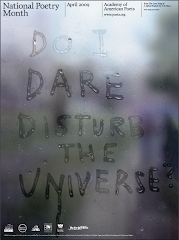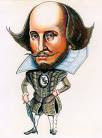Here are 10 literary works that I consider to be invaluable (please note that they are in no particular order):
-East of Eden by John Steinbeck
-Extremely Loud and Incredibly Close by Jonathan Safran Foer
-Jane Eyre by Charlotte Bronte
-The Golden Compass by Phillip Pullman
-Portrait of an Artist as a Young Man by James Joyce
-Where the Red Fern Grows by Wilson Rawls
-A Heartbreaking Work of Staggering Genius by Dave Eggers
-The Hours by Michael Cunningham (not to downplay the genius that is Virginia Woolf)
-A Midsummer Night's Dream by William Shakespeare
-Spoon River Anthology by Edgar Lee Masters
(And upon Noah's request, I have to write this: Green Squadron and the Relics of Power is my 11th choice!)
My justification for my own personal canon is this: a fabulous combination of contemporary works, classic works, poetry, drama, and some adolescent literature as well. I think that "canonical" works should apply to all age ranges. We should not just base our canons off of works we have studied in high school and college. There's much more out there that has brought us to where we are today (English majors!).
-Megan R.
Subscribe to:
Post Comments (Atom)













If you had to have any Jonathan Safran Foer book on there, I'd suggest "Everything is Illuminated"
ReplyDeleteI love "Everything is Illuminated" as well. I had that one on my original list. However, I related to the protagonist in "Extremely Loud" just a little bit more. I got confused a few times when I read "Everything is Illuminated." Brilliant writing by Foer though (as is normal for him).
ReplyDeleteI have only read a few of your choices, but I am definitely interested in taking some of your suggestions. The only one I'm questioning is The Golden Compass....I'm not really enjoying it right now. I did however, start reading it on vacation, and I might have not been in the right frame of mind to appreciate it.
ReplyDeleteMeg,
ReplyDeleteAs far as "The Golden Compass" goes, I enjoy it, because I want to eventually write fantasy for adolescents. I can understand where you're coming from in it though because it takes a certain mindset to appreciate fantasy in general. I debated putting it on there as well, but I figured I had to since it inspired me to write so much. The series is wonderful, and he has some beautifully-developed characters. Hence my interest. I am not sure about teaching it in the classroom though. There are definitely some significant anti-church metaphors in there that only some adolescents would be able to handle.
I love that you've got a real mix of works on your list, and of the works that I've read (just about everything, minus Foer, Rawls, and Masters) I agree that many of them are important and meaningful. I'm not sure I agree with you on all of them, of course, but the item that I have the most trouble with is actually "Midsummer Night's Dream." Why this play? Of everything Shakespeare wrote, why is this the one you choose to put in your canon? I guess I frequently think of this play as having less to offer than a lot of his works, although I am much less familiar with his comedies than his tragedies. What does this play about drugged up lovers really offer that isn't more meaningfully presented in another of his works?
ReplyDeleteAbby,
ReplyDeleteI chose "Midsummer Night's Dream" from an actress's perspective alone. I guess, to me, the canon is not just about English classes, but what could be taught in classes of the dramatic arts variety. Eventually, I hope to teach theatre classes at the collegiate level, and I chose "Midsummer" because it not only means something to me personally (having been in it and studied it), but I also think the play represents Shakespeare's humor and wit so well. I actually prefer Shakespeare's comedies to his tragedies, and I think "Midsummer" has fabulous subplots, and the character of Puck has always been a symbol of the perfect trickster in my head. I just think I could work with it so well in a theatre class. I understand your concern though, and I know where you're coming from on the choice.
Megan,
ReplyDeleteI definitely value Midsummer Night's Dream, too, and, like you, I think Puck is fabulous. I also agree that this is an excellent example of Shakespeare's immense wit. I think the only place we actually disagree is on our personal preference for the Bard's comedies or tragedies; I tend to find his tragedies more meaningful, but I do appreciate his ability to deal with important issues effectively in his comedies. And your point about the value of this work from a drama perspective is definitely valid. I think you're right to consider this idea of canon from a wider viewpoint. Nicely done!